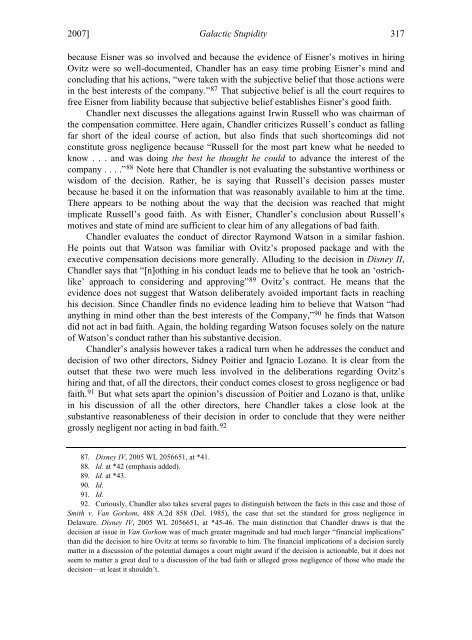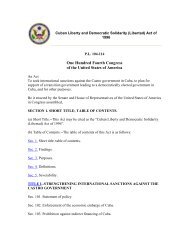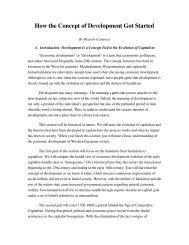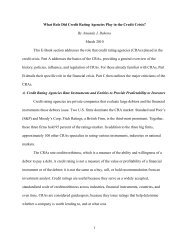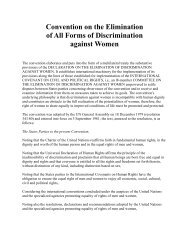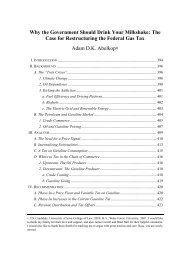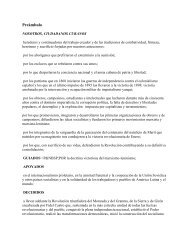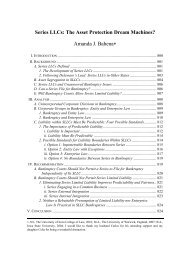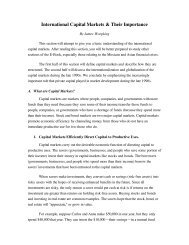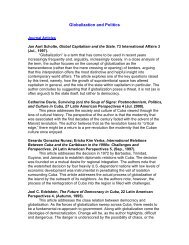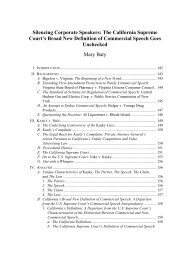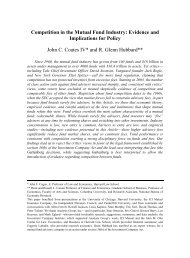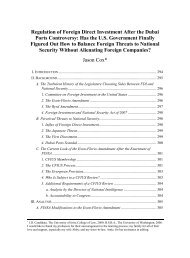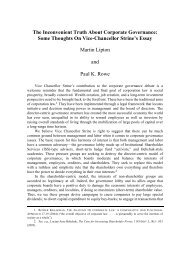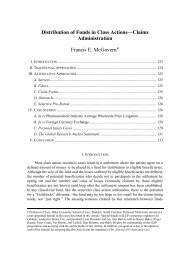Galactic Stupidity and the Business Judgment Rule - College of Law
Galactic Stupidity and the Business Judgment Rule - College of Law
Galactic Stupidity and the Business Judgment Rule - College of Law
You also want an ePaper? Increase the reach of your titles
YUMPU automatically turns print PDFs into web optimized ePapers that Google loves.
2007] <strong>Galactic</strong> <strong>Stupidity</strong> 317<br />
because Eisner was so involved <strong>and</strong> because <strong>the</strong> evidence <strong>of</strong> Eisner’s motives in hiring<br />
Ovitz were so well-documented, Ch<strong>and</strong>ler has an easy time probing Eisner’s mind <strong>and</strong><br />
concluding that his actions, “were taken with <strong>the</strong> subjective belief that those actions were<br />
in <strong>the</strong> best interests <strong>of</strong> <strong>the</strong> company.” 87 That subjective belief is all <strong>the</strong> court requires to<br />
free Eisner from liability because that subjective belief establishes Eisner’s good faith.<br />
Ch<strong>and</strong>ler next discusses <strong>the</strong> allegations against Irwin Russell who was chairman <strong>of</strong><br />
<strong>the</strong> compensation committee. Here again, Ch<strong>and</strong>ler criticizes Russell’s conduct as falling<br />
far short <strong>of</strong> <strong>the</strong> ideal course <strong>of</strong> action, but also finds that such shortcomings did not<br />
constitute gross negligence because “Russell for <strong>the</strong> most part knew what he needed to<br />
know . . . <strong>and</strong> was doing <strong>the</strong> best he thought he could to advance <strong>the</strong> interest <strong>of</strong> <strong>the</strong><br />
company . . . .” 88 Note here that Ch<strong>and</strong>ler is not evaluating <strong>the</strong> substantive worthiness or<br />
wisdom <strong>of</strong> <strong>the</strong> decision. Ra<strong>the</strong>r, he is saying that Russell’s decision passes muster<br />
because he based it on <strong>the</strong> information that was reasonably available to him at <strong>the</strong> time.<br />
There appears to be nothing about <strong>the</strong> way that <strong>the</strong> decision was reached that might<br />
implicate Russell’s good faith. As with Eisner, Ch<strong>and</strong>ler’s conclusion about Russell’s<br />
motives <strong>and</strong> state <strong>of</strong> mind are sufficient to clear him <strong>of</strong> any allegations <strong>of</strong> bad faith.<br />
Ch<strong>and</strong>ler evaluates <strong>the</strong> conduct <strong>of</strong> director Raymond Watson in a similar fashion.<br />
He points out that Watson was familiar with Ovitz’s proposed package <strong>and</strong> with <strong>the</strong><br />
executive compensation decisions more generally. Alluding to <strong>the</strong> decision in Disney II,<br />
Ch<strong>and</strong>ler says that “[n]othing in his conduct leads me to believe that he took an ‘ostrichlike’<br />
approach to considering <strong>and</strong> approving” 89 Ovitz’s contract. He means that <strong>the</strong><br />
evidence does not suggest that Watson deliberately avoided important facts in reaching<br />
his decision. Since Ch<strong>and</strong>ler finds no evidence leading him to believe that Watson “had<br />
anything in mind o<strong>the</strong>r than <strong>the</strong> best interests <strong>of</strong> <strong>the</strong> Company,” 90 he finds that Watson<br />
did not act in bad faith. Again, <strong>the</strong> holding regarding Watson focuses solely on <strong>the</strong> nature<br />
<strong>of</strong> Watson’s conduct ra<strong>the</strong>r than his substantive decision.<br />
Ch<strong>and</strong>ler’s analysis however takes a radical turn when he addresses <strong>the</strong> conduct <strong>and</strong><br />
decision <strong>of</strong> two o<strong>the</strong>r directors, Sidney Poitier <strong>and</strong> Ignacio Lozano. It is clear from <strong>the</strong><br />
outset that <strong>the</strong>se two were much less involved in <strong>the</strong> deliberations regarding Ovitz’s<br />
hiring <strong>and</strong> that, <strong>of</strong> all <strong>the</strong> directors, <strong>the</strong>ir conduct comes closest to gross negligence or bad<br />
faith. 91 But what sets apart <strong>the</strong> opinion’s discussion <strong>of</strong> Poitier <strong>and</strong> Lozano is that, unlike<br />
in his discussion <strong>of</strong> all <strong>the</strong> o<strong>the</strong>r directors, here Ch<strong>and</strong>ler takes a close look at <strong>the</strong><br />
substantive reasonableness <strong>of</strong> <strong>the</strong>ir decision in order to conclude that <strong>the</strong>y were nei<strong>the</strong>r<br />
grossly negligent nor acting in bad faith. 92<br />
87. Disney IV, 2005 WL 2056651, at *41.<br />
88. Id. at *42 (emphasis added).<br />
89. Id. at *43.<br />
90. Id.<br />
91. Id.<br />
92. Curiously, Ch<strong>and</strong>ler also takes several pages to distinguish between <strong>the</strong> facts in this case <strong>and</strong> those <strong>of</strong><br />
Smith v. Van Gorkom, 488 A.2d 858 (Del. 1985), <strong>the</strong> case that set <strong>the</strong> st<strong>and</strong>ard for gross negligence in<br />
Delaware. Disney IV, 2005 WL 2056651, at *45-46. The main distinction that Ch<strong>and</strong>ler draws is that <strong>the</strong><br />
decision at issue in Van Gorkom was <strong>of</strong> much greater magnitude <strong>and</strong> had much larger “financial implications”<br />
than did <strong>the</strong> decision to hire Ovitz at terms so favorable to him. The financial implications <strong>of</strong> a decision surely<br />
matter in a discussion <strong>of</strong> <strong>the</strong> potential damages a court might award if <strong>the</strong> decision is actionable, but it does not<br />
seem to matter a great deal to a discussion <strong>of</strong> <strong>the</strong> bad faith or alleged gross negligence <strong>of</strong> those who made <strong>the</strong><br />
decision—at least it shouldn’t.


